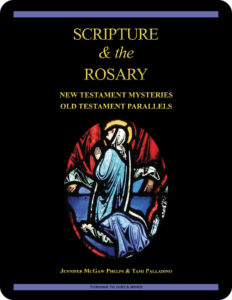I have learned the secret
 The Letter to the Philippians 4:13 (NABRE) contains Paul’s familiar statement, “I have the strength for everything through him who empowers me.” (The RSVCE translation is perhaps more familiar: “I can do all things in him who strengthens me.” Immediately prior to that verse in the Letter to the Philippians 4:12 (NABRE), the setup contains a fascinating line that’s extremely difficult to translate.
The Letter to the Philippians 4:13 (NABRE) contains Paul’s familiar statement, “I have the strength for everything through him who empowers me.” (The RSVCE translation is perhaps more familiar: “I can do all things in him who strengthens me.” Immediately prior to that verse in the Letter to the Philippians 4:12 (NABRE), the setup contains a fascinating line that’s extremely difficult to translate.
The New American Bible Revised Edition (NABRE) translates the last section of that verse as “I have learned the secret of …” The Greek verb being used, μυέω (mueo), comes from the same root as μυστήριον (musterion), a word that can mean a secret or hidden thing but also specifically refers to secrets of religious observance only available to the initiated. This word is the Greek word for the sacraments. Paul not only is suggesting that there’s some secret to living in contradiction between want and abundance, he’s indicating that this secret is rooted in Christ and in the deepest rites of the Christian faith.
Consider how living a sacramental life rooted in Christ may lead to both abundance and want at the same time.
you also may like our study of Scripture & the Rosary (digital only)
 Scripture & the Rosary: New Testament Mysteries, Old Testament Parallels, a 26-lesson Catholic Bible study with an imprimatur, looks at the biblical foundations of the Rosary. The study includes lessons on Pope St. John Paul II’s Rosarium Virginis Mariae (Rosary of the Virgin Mary), the Apostles’ Creed, and the Luminous Mysteries as well as the original 15 Mysteries of the Rosary. Color photographs of stained glass windows depict key scenes in the lives of Jesus and Mary. Free digital lessons rotate throughout the year on our website.
Scripture & the Rosary: New Testament Mysteries, Old Testament Parallels, a 26-lesson Catholic Bible study with an imprimatur, looks at the biblical foundations of the Rosary. The study includes lessons on Pope St. John Paul II’s Rosarium Virginis Mariae (Rosary of the Virgin Mary), the Apostles’ Creed, and the Luminous Mysteries as well as the original 15 Mysteries of the Rosary. Color photographs of stained glass windows depict key scenes in the lives of Jesus and Mary. Free digital lessons rotate throughout the year on our website.
 Click on the picture of the statue of Moses with horns (above) to learn more about Lost in Translation. A new entry is archived each Monday. Contact us to receive Lost in Translation by email every week. You may use any of the contact links on our website to ask Matthew a question.
Click on the picture of the statue of Moses with horns (above) to learn more about Lost in Translation. A new entry is archived each Monday. Contact us to receive Lost in Translation by email every week. You may use any of the contact links on our website to ask Matthew a question.
